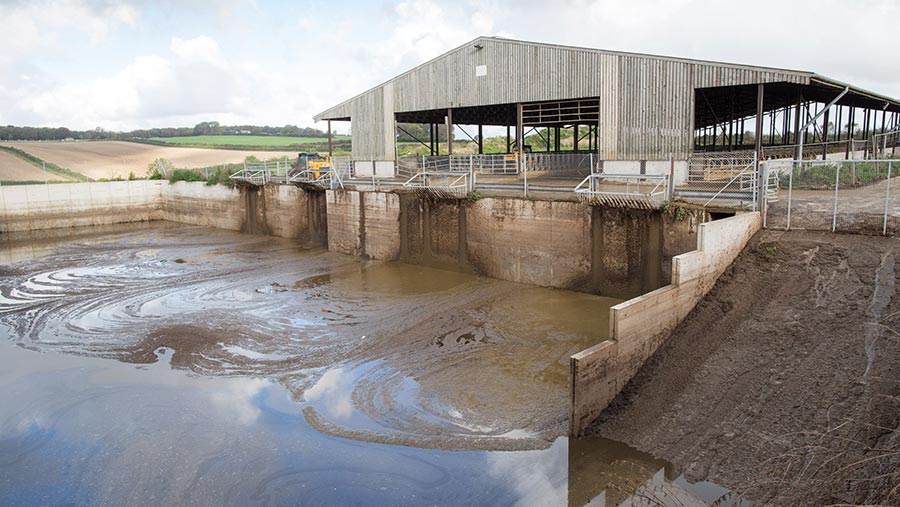Farmers pushed to leave sector after costly EA inspections
 © Tim Scrivener
© Tim Scrivener A sharp rise in the number of Environment Agency (EA) inspections nationwide has left hundreds of farmers facing enforcement action, with the dairy sector hit particularly hard.
Dairy consultants have warned they are seeing more farmers deciding to leave the dairy sector as a result of these on-farm inspections.
Talking to Farmers Weekly, one adviser said they had seen a number of their clients left with a choice of either having to invest hundreds of thousands of pounds into their existing businesses, or sell up and retire.
See also: Environment Agency ‘not fit for purpose’, says Batters
This hard-line approach by the EA can be seen in the figures, with the number of farm inspections rising tenfold since 2011.
Almost 4,000 EA farm inspections have taken place in England between April last year and the end of January this year, and of those inspected, almost half (46%) were found to be non-compliant.
The EA told Farmers Weekly there had been 2,628 beef and dairy farm inspections and 912 sheep farm inspections.
Enforcement action
This has led to enforcement action being taken on at least 315 occasions during the past 10 months.
Dairy farmers are particularly at risk of needing major investment on farm, with some of the most common required actions relating to clean and dirty water separation, silage clamps, lack of proper nutrient management plans, and slurry storage.
Combined with an incredibly volatile year for farmgate milk prices in 2023, this has been enough for some farmers to choose to leave the sector altogether.
Ed Troughton, EA senior agriculture advocacy and engagement adviser, said: “The agriculture sector is integral to delivering improvements to our environment, and we always aim to work constructively with the sector at every opportunity to achieve this.
“We take an advice-led approach to regulation and give farmers the opportunity to bring themselves into compliance.
“During a farm inspection we will look at a variety of areas, including slurry and silage stores and livestock housing, and then will talk farmers through the steps they need to take to become compliant, with a follow-up letter and report confirming our findings and timescales for making changes.”
He added: “Alongside this, we also refer farmers to our Catchment Sensitive Farming scheme, which offers further advice and support on compliance and identifies grants and funding they could utilise.”
Target areas
The EA’s team of 90 officers covers the whole of England and targets inspections on a river catchment basis.
Key considerations include:
- Areas of nutrient neutrality
- Areas with diffuse water pollution plans
- Areas with specific types of farming
- Protected conservation areas.
EA chairman Alan Lovell recently told farmers there would be occasions “when we have no choice but to prosecute businesses and individuals for serious breaches of environmental policies and procedures”.
However, he added that the agency provided all new staff with mental health training to try to get them as well-equipped as possible.
Mr Lovell explained that the water industry was also facing increased scrutiny, with the EA aiming to make 4,000 inspections next year and 11,000 the year after.
Welsh farm inspections increase
Natural Resources Wales (NRW) has also stepped up the number of farm inspections it carries out, and aims to inspect more than 800 farms in 2024.
It has established two Control of Agricultural Pollution Regulations (CoAPR) teams to carry out inspections.
Simon Griffiths, CoAPR team leader for north Wales, said: “We can assure farmers that CoAPR compliance inspections are nothing to be feared. We do not wish to add to farmers’ pressures unnecessarily.
“We will always provide reasonable notice, normally in writing, to farmers ahead of any planned compliance inspections, stating what officers will want to inspect.”
Mr Griffiths added that NRW wanted to work positively with farmers and provide advice.
“But where the farm poses a significant risk of polluting, we will have no choice but to take enforcement action.”
